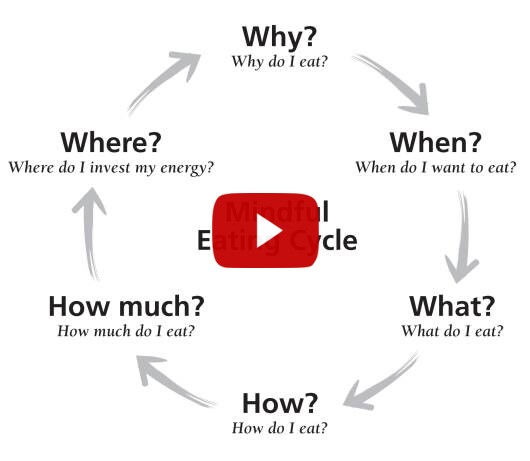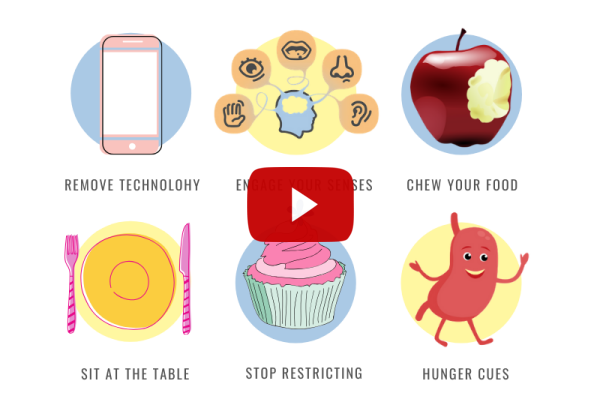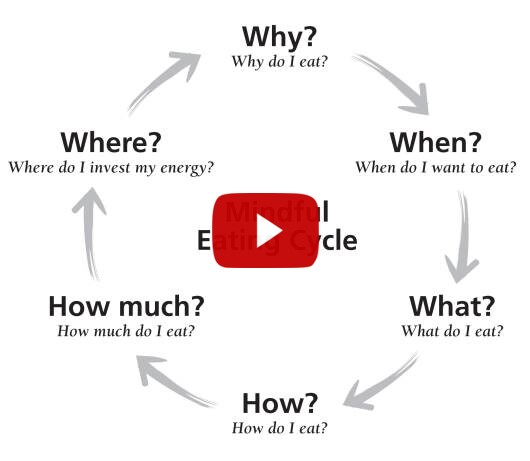What Is Mindful Eating?
In today’s fast-paced world, we often find ourselves moving through life on autopilot. Especially when it comes to food, we might grab quick meals or munch mindlessly while binge-watching our favorite shows. But what if we took a moment to pause and embrace a new perspective? That’s where mindful eating comes in.
So, what is mindful eating, exactly? Think of it as a practice that encourages you to engage with your food in a more conscious and enriching way. When you eat mindfully, you’re not just consuming food; you are experiencing it. This means taking the time to savor each bite, being aware of the flavors, textures, and even the smells of your meal. Instead of devouring dinner as a mere necessity, you transform it into an opportunity for nourishment, exploration, and gratitude.
Mindfulness eating, by definition, invites us to pay attention to the present moment. In essence, it’s about being fully aware of our bodily sensations, thoughts, and feelings concerning food. Unlike mindless eating, which often results in overeating or unhealthy choices, mindful eating cultivates a deeper connection with our food and ourselves, leading to healthier habits and improved well-being.

Why Mindful Eating Matters
Understanding the importance of mindful eating can completely change your food experience. For starters, the benefits of mindful eating extend far beyond weight loss or healthier meal choices. Rather, they encompass a holistic approach toward eating that influences our emotional, psychological, and even our social interactions concerning food.
Moreover, when we practice mindful eating, we might find ourselves making healthier food choices naturally. Instead of reaching for that sugary snack when feeling stressed, we start listening to our bodies’ signals, allowing us to choose foods that nourish us physically and emotionally. This often results in a more balanced diet over time without the feelings of deprivation or guilt that can accompany restrictive diets.
Additionally, mindful eating promotes gratitude and appreciation for the food we consume. By focusing on the sourcing, preparation, and enjoyment of each meal, we can foster a sense of connection to not just our food but also the people and cultures associated with it. Eating becomes an experience rather than a mundane task. As a result, we are likely to relish our meals more, which can prevent the mindless behavior of overeating or snacking out of boredom.

How to Practice Mindful Eating – The Basics
Now that we’ve covered what mindful eating is and why it matters, let’s delve into how to put it into practice. Here are some fundamental strategies to help you eat mindfully.
- Start Slow: One of the most effective tips for mindful eating is to slow down your eating pace. Chew your food thoroughly and savor the flavors. Often, our busy lives compel us to rush, but the slower you eat, the more you can appreciate every bite.
- Set the Scene: Create a pleasant environment for your meals. Turn off the TV, put away your phone, and make your dining area inviting. When you engage in conscious eating, it enhances your awareness and enjoyment of the meal.
- Engage Your Senses: Before eating, take a moment to observe your food. Notice its colors, textures, and smells. Imagine the journey your meal took to reach your plate, and allow that appreciation to deepen your experience and connection.

Mindful Eating Techniques to Enhance Your Experience
Having laid the groundwork, it’s time to explore some effective mindful eating techniques that can transform your meals into profound experiences.
- Mindful Eating Meditation: This technique combines the principles of meditation with eating. Before your meal, take a few deep breaths and center your thoughts. Visualize the food as it enters your body, nurturing and replenishing you. This also helps alleviate anxiety related to eating.
- Gratitude Journaling: Keep a mindful eating diary where you jot down your thoughts and feelings about your meals. Reflecting on your food choices can help reinforce gratitude for the nourishment you receive and promote positive changes in your habits.
- Eating with Intention: Before each meal, consciously set your intention. Decide how you want to feel during and after eating. This practice aligns your mindset with your body’s nutritional needs, helping you to eat more mindfully.

The Role of Mindfulness in Healthy Eating Choices
You might be wondering, “How does mindful eating help people make healthier food choices?” It starts with mindfulness itself—a sense of awareness that can influence your decisions.
When you take time to practice mindful eating, you’re less likely to eat out of boredom or stress. Instead of dismissing physiological cues, you learn to listen to your body’s hunger and satiety signals, leading you to make choices that genuinely satisfy your needs.
Furthermore, this heightened awareness can turn unhealthy cravings into productive discussions about your relationship with food. Perhaps an afternoon slump drives a craving for sweets. Through mindfulness, you can recognize that your body might be asking for energy rather than sugar. Listening to your body can lead you to options like a handful of nuts or a piece of fruit instead.

Tips for Mindful Eating Habits
If you’re keen to adopt mindful eating practices, here are some practical mindful eating tips to integrate into your daily meal routines.
- Pre-Meal Planning: Invest a little time each week planning meals that align with your goals. Being intentional about what food to prepare leads to more mindful consumption.
- Mindful Snacking: Instead of mindlessly grabbing snacks, take a moment to assess your hunger levels. Choose snacks that add nutritional value to your diet, and enjoy them slowly and thoughtfully.
- Make Mealtime Special: Treat every meal as a special occasion. Use pleasant dinnerware and create a personal ritual around your meals, making eating more than just a routine activity.

Overcoming Mindless Eating Patterns
Transitioning from mindless eating habits to a more mindful eating practice can feel daunting. However, learning about the traits of mindless eaters can help to shed light on areas needing more attention.
Being a mindless eater often means you consume food without considering your body’s needs. People may eat while distracted, leading to excessive portion sizes without conscious recognition of flavors or satisfaction levels. This might appear innocuous, but over time, it can culminate in unhealthy eating habits.
To combat this, recognize situations that lead to distracted eating. For example, if you always snack while watching television, try enjoying snacks at a dining table instead. Shifting your setting can help create a more focused eating experience, making it easier to eat mindfully.

How Mindful Eating Contributes to Weight Loss
You may ask, “Can mindful eating lead to weight loss?” In short, yes! Engaging in mindful eating can empower you with lasting changes in your relationship with food, helping you achieve weight loss while also enhancing overall wellness.
The process begins with understanding the psychological aspects of eating. Mindfulness allows you to recognize when you are consuming food for reasons unrelated to hunger, such as emotional triggers or social pressures. By identifying and addressing these root causes, you can establish a healthier relationship with food.
Furthermore, as you train yourself to eat mindfully, you may notice enhanced satisfaction with less food. By tuning into your body’s signals, you gradually learn what your body truly desires, leading to better portion control and minimizing overeating.

Mindful Eating in Everyday Life
Incorporating mindful eating into everyday life doesn’t mean you have to overhaul your entire lifestyle overnight. Instead, think of it as a journey, implementing mindfulness into meals and snacking gradually.
Start small; try practicing mindful eating during one meal a day, perhaps breakfast as you take a moment to savor each bite. Over time, expand this practice to lunch, dinner, and even snacks. Celebrating small successes breeds motivation to embrace this empowering lifestyle.
Engage family members or friends in the journey as well. Hosting “conscious meals” with others can elevate the experience and foster supportive, meaningful connections around food. Plus, sharing your mindful eating experiences can inspire others to join the movement.

Embrace Mindful Eating – Live Better with Every Bite
Ultimately, mindful eating is not merely a diet but a way of life that invites you to appreciate each moment spent nurturing your body. So, as you finish reading this blog, consider how you can take the principles of mindfulness and food into your kitchen and dining experiences.
Your journey into mindful eating holds immense potential not just for your physical health but for well-being, gratitude, and overall happiness. So, go on—eat mindfully today and discover the beauty of nourishing your body with intention and grace.
